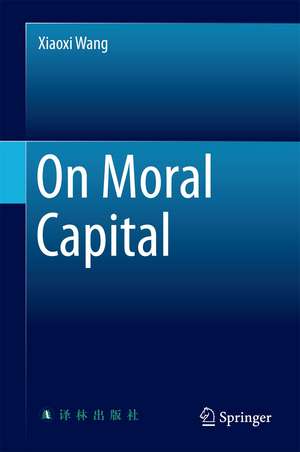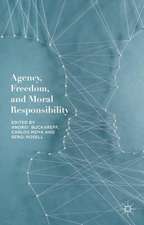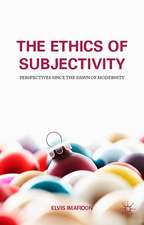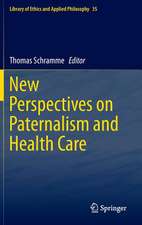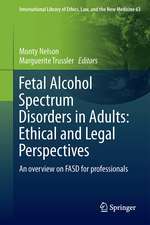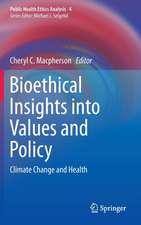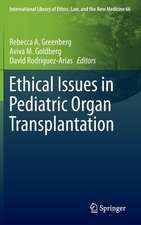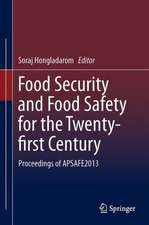On Moral Capital
Autor Xiaoxi Wangen Limba Engleză Hardback – 26 ian 2015
| Toate formatele și edițiile | Preț | Express |
|---|---|---|
| Paperback (1) | 367.55 lei 38-44 zile | |
| Springer Berlin, Heidelberg – 6 oct 2016 | 367.55 lei 38-44 zile | |
| Hardback (1) | 380.72 lei 38-44 zile | |
| Springer Berlin, Heidelberg – 26 ian 2015 | 380.72 lei 38-44 zile |
Preț: 380.72 lei
Nou
Puncte Express: 571
Preț estimativ în valută:
72.86€ • 75.79$ • 60.15£
72.86€ • 75.79$ • 60.15£
Carte tipărită la comandă
Livrare economică 10-16 aprilie
Preluare comenzi: 021 569.72.76
Specificații
ISBN-13: 9783662455432
ISBN-10: 3662455439
Pagini: 211
Ilustrații: XI, 266 p. 8 illus. in color.
Dimensiuni: 155 x 235 x 17 mm
Greutate: 0.57 kg
Ediția:2015
Editura: Springer Berlin, Heidelberg
Colecția Springer
Locul publicării:Berlin, Heidelberg, Germany
ISBN-10: 3662455439
Pagini: 211
Ilustrații: XI, 266 p. 8 illus. in color.
Dimensiuni: 155 x 235 x 17 mm
Greutate: 0.57 kg
Ediția:2015
Editura: Springer Berlin, Heidelberg
Colecția Springer
Locul publicării:Berlin, Heidelberg, Germany
Public țintă
ResearchCuprins
Foreword,- Chapter one: the theoretical base of moral capital.- 1.The economy is indeed the economy integrated morality.- 2.Moral objective: Spiritual or material.- 3.The virtue of economy and its function.- 4.Pareto optimality and its moral base.- 5.The economic values of morality.- 6.Moral profit and moral materialization are not one thing.- Chapter two: the basic principle of moral capital.- 1.The conception of moral capital and its value realization.- 2.The dependency and independence of moral capital.- 3.An economic interpretation to moral capital.- 4.The historical interpretation and contemporary thought of the conception and function of moral capital.- 5.Moral capital and its cultivation.- 6.The basic forms of moral capital.- 7.In what sense morality is capital.- 8. How can morality be capital.- Chapter three: moral effect during the corporate operation as capital factor.- 1.In what sense morality is spiritual productive force.- 2.The base and standard of productive force level of morality.- 3.Integrity is the core-competitiveness for economic development.- 4.Corporate integrity and realization mechanism.- 5.The moral situation and strategy analysis for contemporary corporate development in China.
Notă biografică
Xiaoxi Wang, Ph.D., a specialist sponsored by the State Council Special Allowance, professor at Nanjing Normal University, dissertation advisor, director of the Research Institute for Economic Ethics, vice chairman of Ethical Society of China, Chairman of Economic Ethics Society of China, director of the Research Institute for Economic Ethics at the Center of Ethics and Moral Construction of Renmin University of China, one of the hundred key research bases of the Ministry of Education Humanities and Social Science, the chief project expert for “Studies of the General History of the Thoughts of Economic Ethics of China” of the National Social Science Fund Project for Tendering, editor of Chinese Social Science Digest, editor in chief of Yearbook of Chinese Economic Ethics. His main works include Chinese Economic Ethics, Moral Capital and Economic Ethics (self-selected essays), General Introduction to Ethics (ed.), Contemporary Western Philosophy of Life (ed.), 60 Years of Chinese Ethics (co-author), etc. His Chinese Traditional Thoughts of Economic Ethics has been translated into Korean and published in South Korean. Xiaoxi Wang was selected in the third Chinese Outstanding Humanities Scientists in Research Report on Chinese Outstanding Humanities Scientists of 2011.
Textul de pe ultima copertă
This book promotes the original concept of “Moral Capital” as the key to analyzing the nature and function of morality in economic activities. The book is divided into three major sections. In the first, the author argues that the logical connections between morality and economy and those between morality and profit provide a concrete theoretical basis for the concept of moral capital. In the second, the author elucidates the concept, the form and the functional mechanism of moral capital. In the third, the author describes the economic ethics of traditional Chinese intellectual history, especially the main idea of morality’s role in economics, which shows the historical narrative of this concept and provides resources on ideological history, helping businesses to establish their own moral capital approaches and accumulate moral capital. In the fourth, the author explores the special economic role of morality, and proposes an evaluation index system for assessing moral assets in enterprises, demonstrating the concept of moral capital’s significance from both a theoretical and application-oriented standpoint.
Caracteristici
Proposes the concept of "moral capital" as an original contribution to the existing research literature on economic ethics Develops an evaluation index system for measuring moral assets in enterprises Showcases the latest corporate development characters of Chinese enterprises Includes supplementary material: sn.pub/extras
